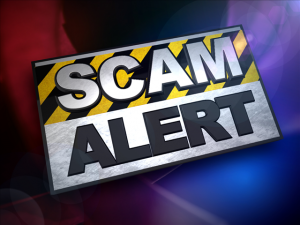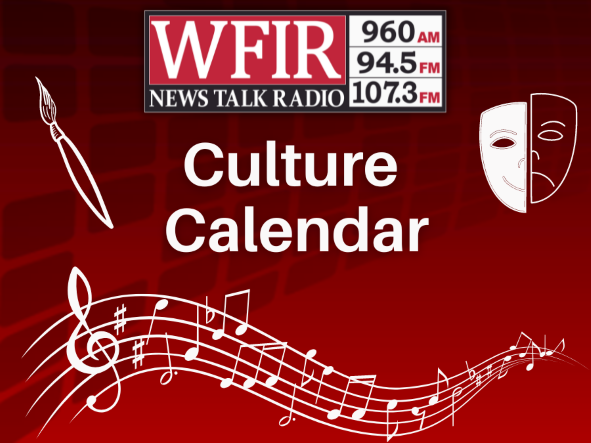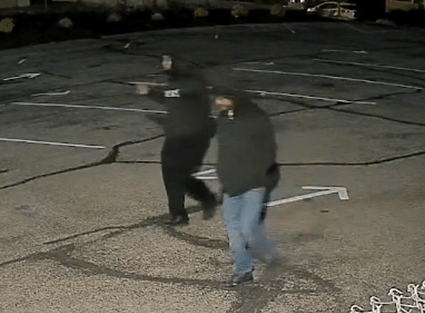 The death of Kobe Bryant — and the worldwide attention is has created — is just the kind of celebrity tragedy that on-line scammers wait for and pounce upon. The Better Business Bureau urges you to avoid “clickbait” emails, those that urge you to click a link to news headline — but direct you instead to malware that is then downloaded onto your computer. WFIR’s Evan Jones has more:
The death of Kobe Bryant — and the worldwide attention is has created — is just the kind of celebrity tragedy that on-line scammers wait for and pounce upon. The Better Business Bureau urges you to avoid “clickbait” emails, those that urge you to click a link to news headline — but direct you instead to malware that is then downloaded onto your computer. WFIR’s Evan Jones has more:
HERE IS THE FULL BBB News Release:
Roanoke, Virginia (January 31, 2020) The Better Business Serving Western Virginia (BBB) is warning basketball fans everywhere not to let their mourning cloud their judgment. BBB cautions consumers of new phishing and clickbait scams.
The recent tragic death of Kobe Bryant is likely to generate scams exploiting fans’ eagerness for information and memorabilia. BBB has seen this happen numerous times in the past when celebrities have died unexpectedly and is warning consumers to be on the lookout for scams mentioning the Lakers star and his daughter, who died in a helicopter crash on Sunday.
Phishing emails target individuals, organizations, or businesses with a catchy subject line. The sender claims to be from a reputable news organization capitalizing on trending news with an exclusive video, image, or document they want to share with you. These links can lead users to a malicious website once clicked.
Verizon’s Data Breach Investigations Report shows that 32% of the data breaches in 2018 involved phishing activity. Another report shows 4% of all emails are phishing emails and nearly one-third of phishing messages get past companies’ default security methods.
Clickbait is a sensationalized post about trending news items highlighting exclusive, breaking, or urgent news inciting people to quite literally, click on it. The description uses words like “amaze,” “shocking” or “never seen before footage.” Once clicked, the reader is directed to a site that may allow cybercriminals to hijack your account or steal personal information.
“Phishing emails and clickbait scams affect everyone,” says Julie Wheeler, President and CEO of BBB Serving Western Virginia. “It’s important we take proper security & precautions to avoid clicking into a malicious site.”
BBB offers the following tips on how to avoid these scams:
Phishing Scam Tips:
Look at the sender’s email address before clicking on anything in the email. If it’s someone you’re not familiar with, delete it.
Don’t click links in any email unless you are positive they go to a reputable address. Before you click, hover over the link to see where it will take you.
Look for spelling & grammar errors. Be wary of posts with poor spelling, capitalization, and grammar mistakes.
Clickbait Scam Tips:
Don’t take the bait. Stay away from promotions of “exclusive,” “shocking” or “sensational” footage. If it sounds too outlandish to be true, it is a scam.
Hover over a link to see its actual destination. Before you click, hover your mouse over the link to see where it will take you.
Use trusted media sources. Check credible media outlets for similar information first. Don’t click on links leading to unfamiliar websites.
Be wary of clickjacking of “friends” profiles. It might not be your friends who are “liking” or sharing scam links to photos. Scammers can hack into social media accounts and use a tactic called “clickjacking.” Clickjacking is a technique used to trick you into clicking on social media links you would not usually click.
Avoid video redirects. Be cautious of videos that redirect you to update your video player. Once you put in your information for the upgrade, hackers can access everything on your computer.
BBB encourages reporting these types of scams to the host website & BBB Scam Tracker. Twitter and Facebook also offer ways to report spam. For more information on scams, check out BBB Scam Tips.



